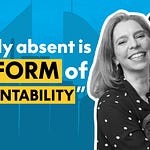Please forward this to ONE friend today and tell them to subscribe here.In this episode, I’m speaking with Kristina McPherson, who moved from Jamaica to Canada in 2014, and now runs As Told By Canadian Immigrants, where she’s the guide she wishes she had before she moved to Canada.
There’s a lot to unpack in this episode, but the part I can’t stop thinking about is when Kristina talks about “post-immigration stress disorder,” a term she coined to describe what many immigrants go through as they try to settle into their new home. I believe it’s also called Ulysses Syndrome.
There’s the constant anxiety. There’s the uncertainty that has you feeling unsettled. There’s the mental load of running two parallel tracks—getting through today while worrying if you’ll even be here tomorrow.
For Kristina, it was LMIA complications. Provincial nominee programs that wouldn’t work in time. Express Entry launching with 800-point cutoffs. Submitting her PR application two months before her work permit expired, then living on implied status for months.
During that time, Kristina lived with two pots, two plates, two glasses. Everything she owned fit in a suitcase. Because if immigration forced her to leave, she wanted it to be easy.
Kristina and I chat about the emotional toll of living in limbo for years. We also explore:
Living two and a half years out of a suitcase
Why she started “As Told by Canadian Immigrants”
Why we need to put boundaries around how one consumes immigration information on social media
Being ‘in-betweeners’ caught between cultures
Dozie’s Notes
A few things that stuck with me as I listened through this week’s conversation:
Community is IMPORTANT. The relationships you build, the support systems you create, and the sense of belonging you develop matter more than professional success or lifestyle preferences when deciding whether a place becomes home.
Consuming immigration information without boundaries feeds panic. The constant stream of worst-case scenarios, policy changes, and anxiety-inducing content isn’t going to solve anything for you. If anything, it’s going to make things feel worse. Limit your sources to a reputable few. And limit your time spent on consuming what’s changed and what’s not changed.
The Canadian permanent residency is paperwork, not belonging. Getting your PR can you take two years. But feeling genuinely at home can take a decade. Your legal status and the emotional settlement operate on completely different timelines. Don’t mix things up.
Official Links
✅ Connect with Kristina McPherson on LinkedIn
Watch her podcast, As Told By Canadian Immigrants
One Ask
If you found this story helpful, please forward or share it to one immigrant out there.














